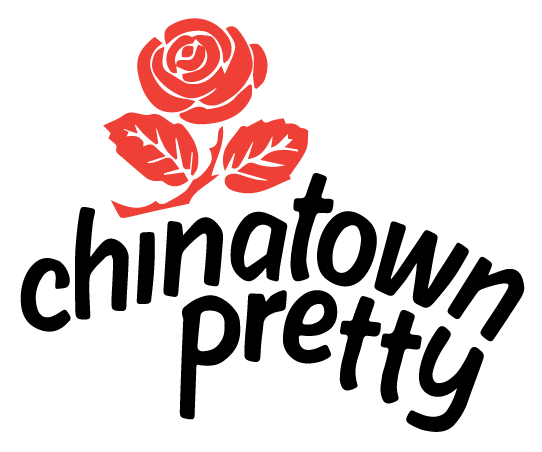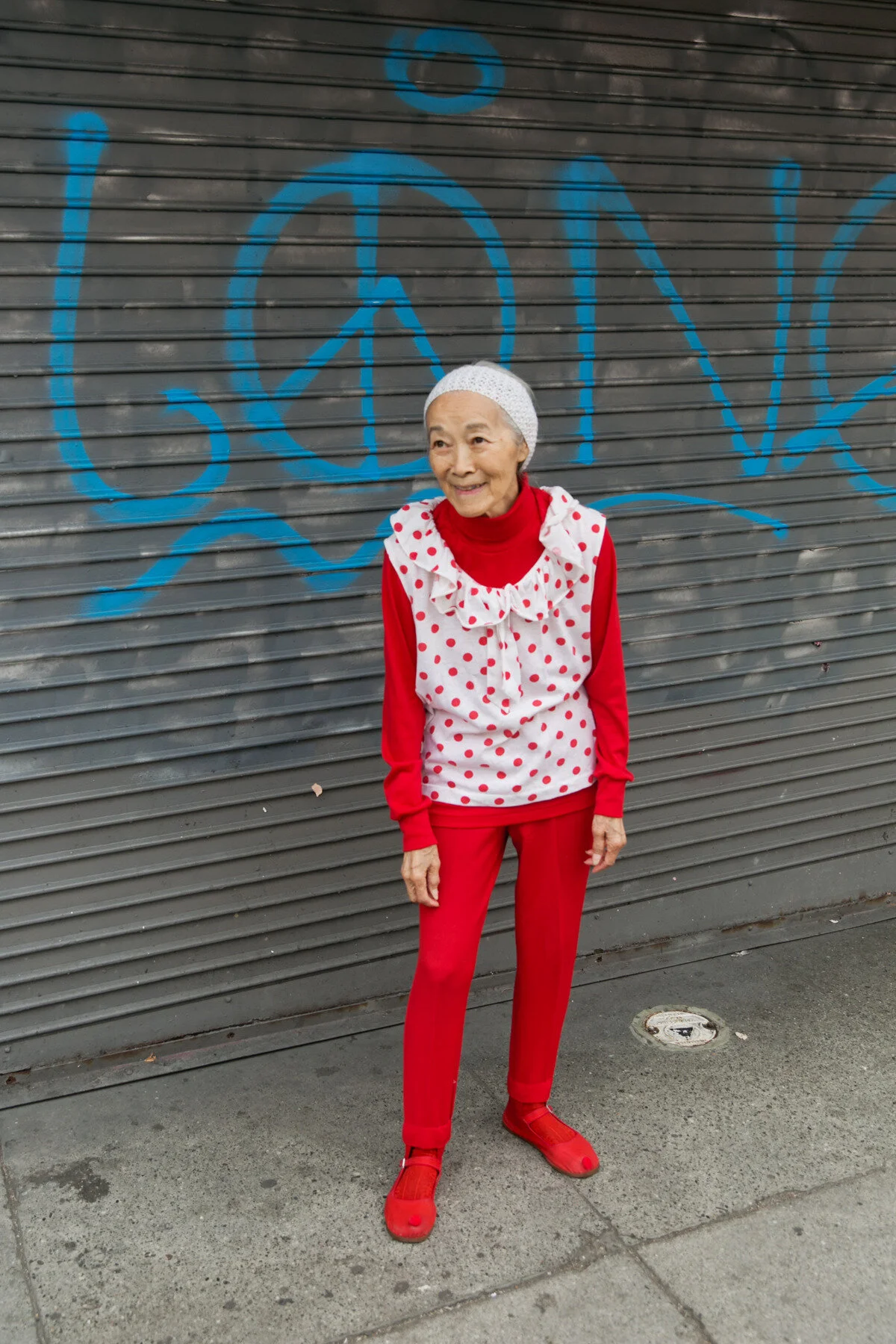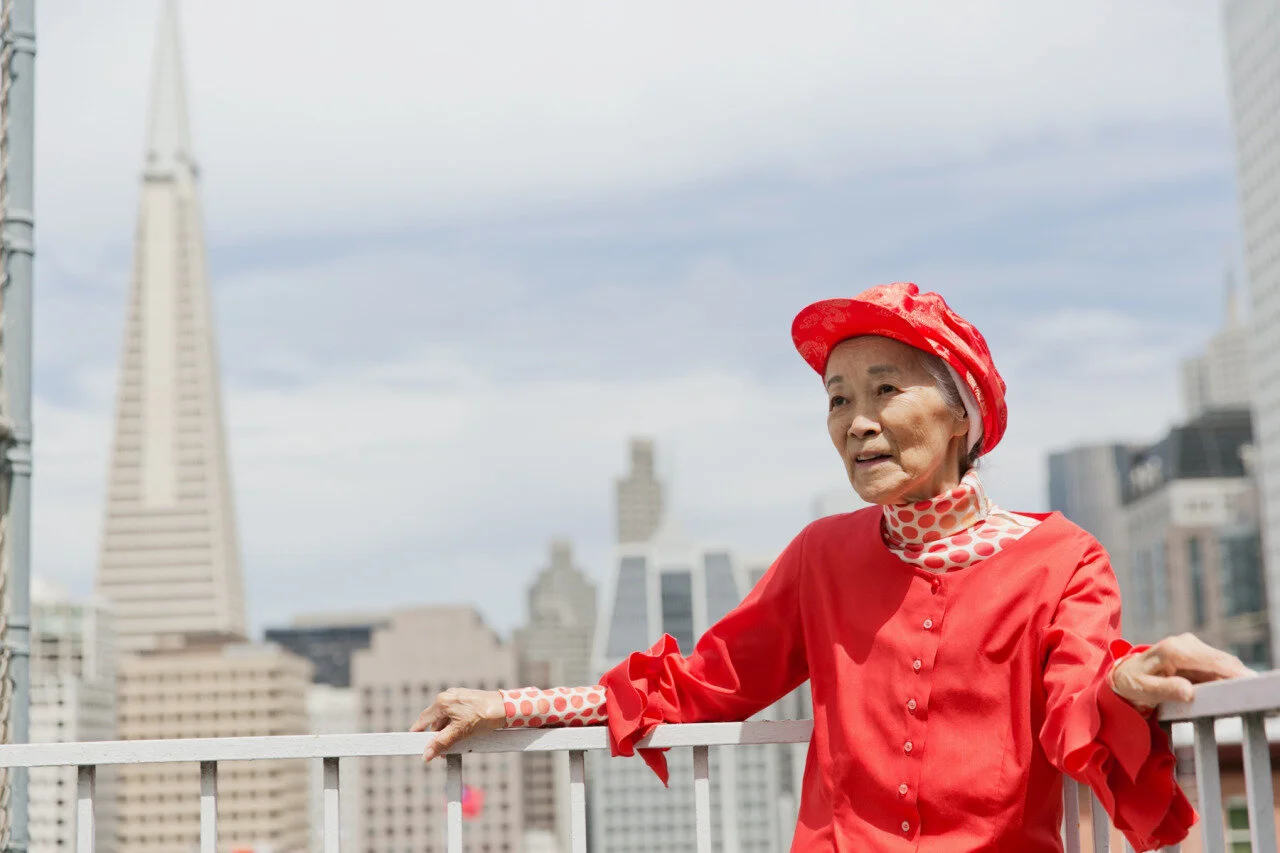Polkadot
We met Dorothy G.C. Quock, better known as Polkadot, at our opening party for Eat Chinatown. Living up to her name, she wore all kinds of polkadot.
She got her nickname at the Cameron House, a Presbyterian family and youth organization in Chinatown. There was another person named Dorothy, so the headmaster nicknamed her Polkadot, and it stuck. At the time, she didn’t wear much polkadot, but now it’s her signature look.
“I grew up here,” she said of Cameron House. Polkadot was in the first group of teens to join the youth program in 1947, when she was 13 years old. On Friday nights they held socials, where teens would learn about “the birds and the bees.” Dorothy also learned about civic responsibility and politics through the youth program. Although she’s no longer active in the religious aspect of the Cameron House, it taught her the importance of “outward change” and community work.
For Polkadot, that means preserving Chinatown history. She leads weekly tours of Chinatown through Wok Wiz and is a archival researcher and consultant on Forever Chinatown, a documentary on Chinatown history interpreted by artist Frank Wong.
She’s a portal to what Chinatown is and was. While we walked around Chinatown, Polkadot had a story to share every time we turned a corner.
“See that building? I was a house girl for a well-to-do engineer. My sister had the job first, but when she moved away I took over. He had these outfits he’d want us to serve in — Chinese brocade blouses. I learned how to mix martinis for dinner parties,” she said, recalling one of her many Chinatown memories.
Dorothy stayed with the Cameron House until she moved away for college. She spent so much time there her mother said, “Why don’t you move your bed there?”
Polkadot was born in 1934 in Chinatown to a family of nine. They lived in SRO’s and houses all over Chinatown — most of the time with 10 of them in one room. Before she’d graduated high school, they’d moved 11 times. “With so many of us, my mom probably got in a lot of arguments with neighbors,” she said.
Her dad worked as a rice deliveryman, dropping off 100 pound rice sacks to Chinatown businesses and residences. For the opening of CAAMFest, an Asian-American film festival, Dorothy took one of the old rice bags and turned it into a dress.
Her mother worked in a sewing factory, where she would bring Dorothy and her siblings to work at the Levi’s factory. “We first learned how to trim hems,” she said. “At 10, I mastered the button hole. We got 2 cents for every button hole we made.”
Child labor laws were not strongly enforced back then, so kids worked next to their mothers. There was always someone in front to keep watch for an inspector.
“They’d yell ‘gweilo’ [ghost man, a Cantonese derogatory term for someone of European descent] whenever a white guy came in and we would run into the bathrooms and hide until someone told us it was safe to come out,” she said. “It usually wasn’t a child labor inspector; it was usually a new employee that had come to pick up the finished jeans.”
Photos taken at the Cameron House (and their epic rooftop basketball court.) Many thanks to Polkadot and the Cameron House for hosting us.
New photos and profile of Polkadot will be featured in our book.





